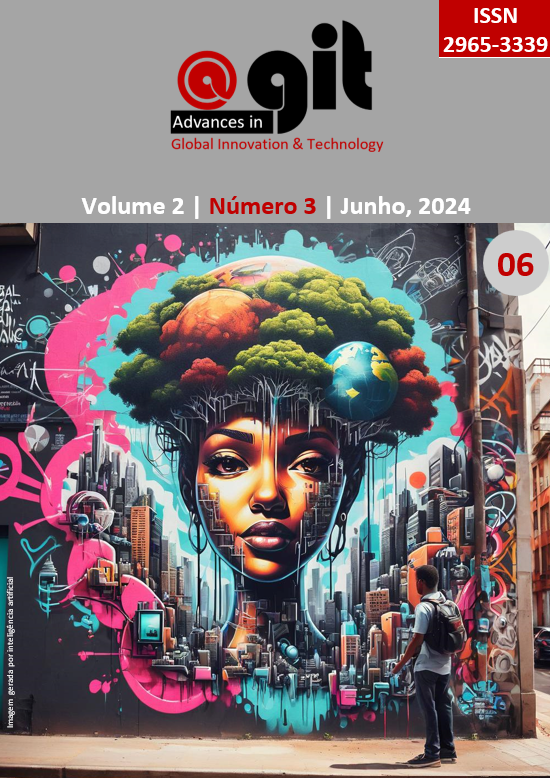The Relationship Between Gestalt Theory and Comic Book Storytelling Techniques
DOI:
https://doi.org/10.29327/2384439.2.3-1Keywords:
Psychology of forms, Comic books, Gestalt, PregnancyAbstract
Comic books are a part of our popular culture and often play a role in promoting reading and fostering creativity, especially in children during their growth and learning process. Despite being closely associated with children's literature due to their playful values, comic books exhibit significant complexity in their narrative techniques, which are often underestimated and subject to certain biases. There are numerous narrative techniques that an author can utilize in constructing their work to make it more enjoyable and appealing, including the organization of shapes and silhouettes of characters and panels. This article explores the relationship between Gestalt Theory and comic book construction techniques, highlighting how visual elements and spatial organization in comics are connected to the principles of the psychology of forms. Through a detailed analysis grounded in specialized literature, derived from bibliographical research, we will demonstrate how comics can leverage Gestalt principles to create a unique and coherent visual experience for readers.
Downloads
References
ARNHEIM, Rudolf. Arte e percepção visual: psicologia da visão criadora. Reimpressão da 1ª. ed. São Paulo: Pioneira Thomson Learning, 1960-2005.
GOMES FILHO, João. Gestalt do Objeto: Sistema de Leitura Visual da Forma. 8. ed. São Paulo: Escrituras, 2008.
GOULARTE, Victor Martins. Narrativa Gráfica: Análise sobre a Passagem do Tempo. Orientador: José Aguiar. 2018. 20f. Monografia (Especialização) – Universidade Tecnológica Federal do Paraná, Curitiba – Paraná, 2018.
MEIRELES, Selma Martins. Kafka Metamorfoseado em Quadrinhos. Veredas – Revista de Estudos Linguísticos, Juiz de Fora, Jan 2008 https://link.gale.com/apps/doc/A200117511/IFME?u=googlescholar&sid=googleScholar&xid=fccdbcd2.
MCCLOUD, Scott. Desvendando os Quadrinhos. São Paulo: MAKRON Books do Brasil, 1995.
MCCLOUD, Scott. Reinventando os Quadrinhos. São Paulo: MAKRON Books do Brasil, 2000.
PESSOA, Alberto Ricardo. A Linguagem dos Histórias em Quadrinhos. João Pessoa: Editora da UFPB, 2016.
OLIVEIRA, Maria Cristina Xavier de. A Arte dos "Quadrinhos" e o Literário. Orientadora: Nelly Novaes Coelho. 2008. 207 f. Tese (Doutorado) - Faculdade de Filosofia, Letras e Ciências Humanas, Universidade de São Paulo, São Paulo, 2008.
SOUZA, Audrey Setton Lopes de. O Desenho como Instrumento Diagnóstico: Reflexões a partir da Psicanálise. Boletim de Psicologia, vol 61 no.135 São Paulo,2011 http://pepsic.bvsalud.org/scielo.php?script=sci_arttext&pid=S0006-59432011000200007.
VARGAS, Alexandre Linck. A Invenção dos Quadrinhos: Teoria e Crítica da Sarjeta. Orientador: Luiz Felipe Guimarães Soares. 2015. 320 f. Tese (Doutorado) – Universidade Federal de Santa Catarina, Florianópolis, 2015.
Published
How to Cite
Issue
Section
License
Copyright (c) 2024 Roberto kiyoshi Yonamini, João Almeida Santos

This work is licensed under a Creative Commons Attribution-NonCommercial-ShareAlike 4.0 International License.
Copyright Policy
By submitting a manuscript for publication in the journal Advances in Global Innovation & Technology (@_GIT), authors agree, in advance and unrestrictedly, to the following terms:
- The authors retain the copyright and grant to the Journal Advances in Global Innovation & Technology (@_GIT) the right of first publication of the manuscript, without any financial burden, and waive any other remuneration for its publication in the Journal of Advances in Global Innovation & Technology (@_GIT).
- Upon submission to the Journal of Advances in Global Innovation & Technology (@_GIT), the manuscript is automatically licensed under the Creative Commons Attribution License, which allows the sharing of the work with acknowledgment of authorship and initial publication in the Journal Advances in Global Innovation & Technology (@_GIT).
- Authors are authorized to enter into additional contracts separately, for non-exclusive distribution of the version of the work published in the Journal Advances in Global Innovation & Technology (@_GIT) (publish in repositories or as a book chapter), with acknowledgment of the initial publication in the Journal Advances in Global Innovation & Technology (@_GIT), provided that such agreement does not imply an endorsement of the content of the manuscript or the new vehicle by the Journal of Advances in Global Innovation & Technology (@_GIT).
- Authors are allowed and encouraged to publish and distribute their work online, in institutional repositories, for example after the editorial process is completed.
- The authors warrant that they have obtained proper permission from their employers for the transfer of rights under this agreement, if those employers own any copyright in the manuscript. In addition, the authors assume any and all responsibility for possible copyright infringements of these employers, exempting Advances in Global Innovation & Technology (@_GIT) from any and all liability in this regard.
- The authors assume all responsibility for the content of the work, including the due and necessary authorizations for the disclosure of data collected and results obtained, exempting the Journal of Advances in Global Innovation & Technology (@_GIT) from any and all liability in this regard.













